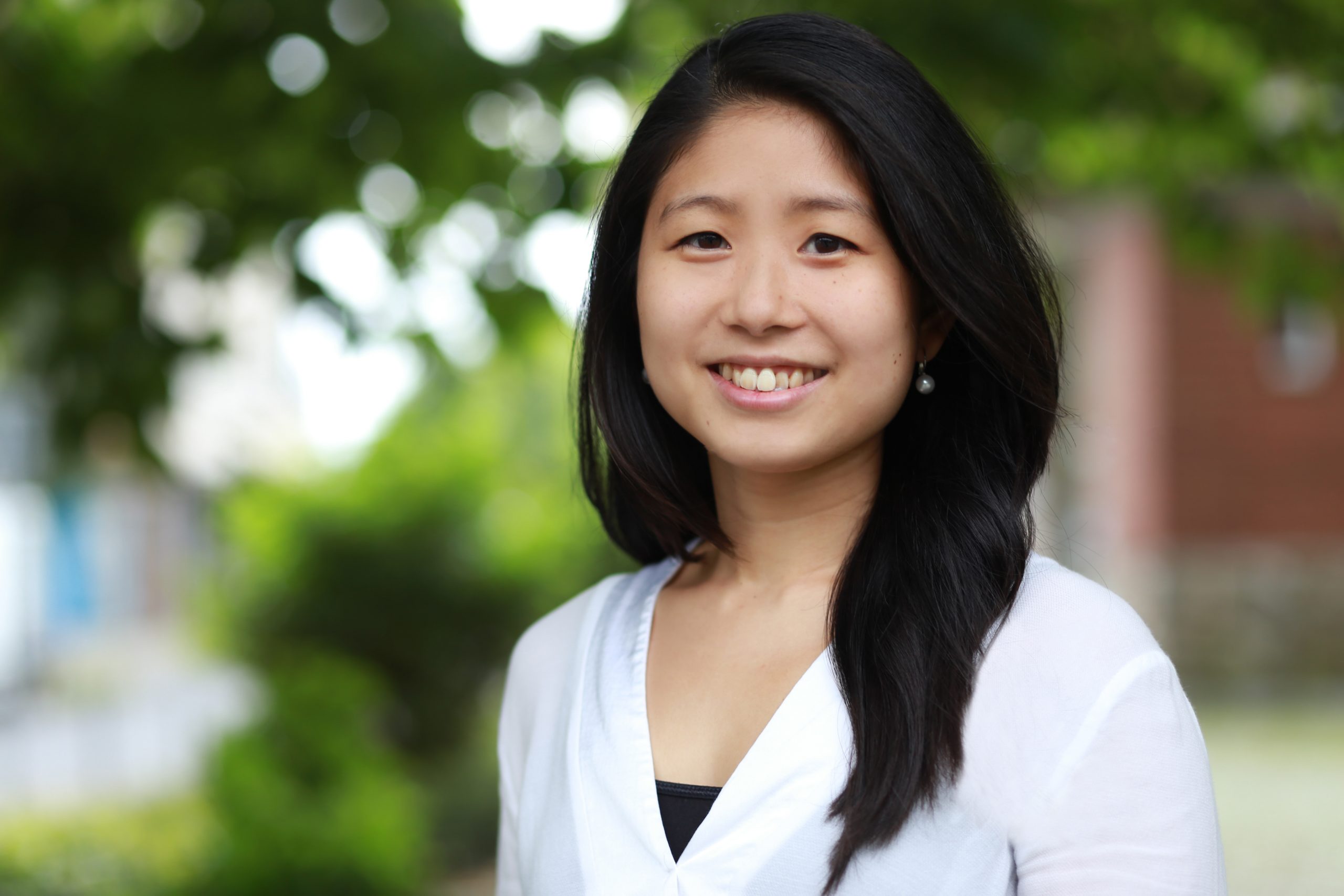Born in Hanoi, Vietnam • Studied Mathematics at RWTH Aachen in Germany • Highest degree: Master of Science in Mathematics • Lives in Utrecht, The Netherlands • PhD candidate in infectious disease modelling at the Julius Center for Health Sciences and Primary Care in Utrecht (The Netherlands)
I was born in Vietnam, grew up in Germany, lived in the UK for about two years in total, and moved to the Netherlands for my PhD four years ago. Having lived in various countries, I always saw myself as a cultural hybrid – bridging the gap between different cultures and traditions. My PhD topic similarly connects two different but intersecting disciplines: I develop mathematical models to tackle the spread of infectious diseases.
When you would have asked me what my future job would be when I was 10 years old, my answer would probably have been “a detective”. I loved solving puzzles and finding solutions to a problem. What I particularly enjoyed about maths was its simplicity: In its pure form, you only need your mind and maybe a pen and a paper.
I knew I wanted to continue to do research in something math-related, but I also realised that I wanted my work to have an impact in the real world.
After graduating high school, I decided to pursue a Maths degree at university. The reason was simple: I was eager to learn more about how to solve abstract problems through logical reasoning. Despite its reputation, you do not need to study maths as a lone wolf. A lot of my university time included working together with fellow students, discussing various solutions, and looking at a problem from different angles. Studying maths at university level was not always easy for me but I had a lot of fun, and I think that’s what counts in the end. When I was about to finish my degree, I felt a bit lost as I realised that I never really had a particular job or career in mind, and I had no real plan for my life. I knew I wanted to continue to do research in something math-related, but I also realised that I wanted my work to have an impact in the real world. However, I had no idea how exactly I could combine these two interests.
By chance, I came across the 80,000 Hours non-profit organisation that tries to guide graduates towards a career that fits their personality but also “effectively tackles the world’s most pressing problems”. This gave me an impetus to contemplate more thoroughly my career choice and I started to do research on the applications of maths to address real-world problems. I quickly learned about the serious risks that infectious diseases pose to our world and how mathematical modelling can provide valuable insights into the field. Luckily, I was able to find a PhD position in infectious disease epidemiology in Utrecht. In hindsight, accepting this position was one of the best decisions in my life as I can genuinely say that I am very happy with my work, my research group, and in particular with my supervisors. They gave me just the right balance between guidance and freedom, and a positive environment to thrive.
Since the start of the COVID-19 pandemic, however, I am using my background to model the spread of SARS-CoV-2 in various settings, for example in hospitals or secondary schools.
When I started my PhD my main topic was to study the transmission dynamics of antibiotic-resistant bacteria in hospitals. Since the start of the COVID-19 pandemic, however, I am using my background to model the spread of SARS-CoV-2 in various settings, for example in hospitals or secondary schools. It has been a very challenging time as my workload has doubled but at the same time, I feel very grateful to have the opportunity to use my skills to ‘do good’ while truly enjoying my work.
The current COVID-19 pandemic demonstrates perfectly that mathematics does not necessarily have to be far from reality, and that it can be a powerful tool for solving real-world problems.
Infectious disease modelling is rather versatile: It requires translating biological problems into the language of mathematics, analytically investigating the research question using the developed model, and finally translating the results back to the real world to obtain implications for infection control policy. The current COVID-19 pandemic demonstrates perfectly that mathematics does not necessarily have to be far from reality, and that it can be a powerful tool for solving real-world problems. Maths used to be underrated and maybe even underappreciated but by showing people how mathematics can be used to stop the spread of infectious diseases, I hope we can spread a little bit more love for mathematics.


Recent Comments